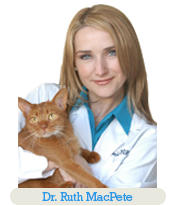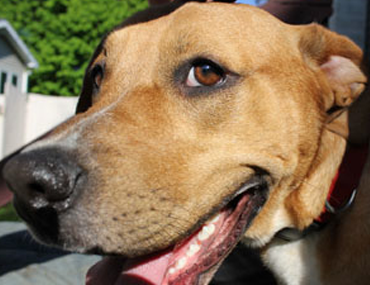
Dr. Ruth MacPete explains how a popular children's book about a flatulent dog can teach some valuable health lessons. For more from Dr. MacPete, find her on Facebook or at www.drruthpetvet.com!
As the mother of a 5-year-old and 3-year-old, I’ve read a lot of children’s books and consider myself to be somewhat of a connoisseur. Among my favorites, Walter the Farting Dog stands out because I enjoy reading it as much as the kids do. Ok, I’m not ashamed to admit that I like potty humor and the book appeals to my juvenile sense of humor, but I also enjoy the quirky illustrations, and as a veterinarian, I love the storyline. The story revolves around Walter the dog and the family who adopt him from the shelter. The family loves Walter but they soon realize that he has really bad gas problem. They fruitlessly try everything to stop the farting: special diets, anti-gas treats, even a visit to the vet. Although the topic makes for a hilarious children’s book, it also addresses a real issue that many pet owners face. Some of the questions I’ve heard from my clients are:
“What can I do to stop my dog’s gas?”
“Our dog is running us out of rooms with their gas. What can we do?”
“My Great Dane has horrible gas. What should we do?”
“Help, I can’t take the gas anymore. What can we do?”
First let me start by stating that flatulence, the medical term for gas production, is normal in both humans and animals. However, excessive gas production can be a sign of gastrointestinal disease. I always recommend having your pet first checked by your veterinarian to rule-out medical problems like malabsorption, parasites, infections or inflammatory conditions.
 Fortunately, flatulence is usually benign, but as many pet parents can attest, it can still be troublesome and disruptive. Flatulence results from the accumulation of gas in the digestive tract. It can occur when too much air is swallowed while eating (aerophagia), or when intestinal bacteria breakdown and ferment indigestible food.
Fortunately, flatulence is usually benign, but as many pet parents can attest, it can still be troublesome and disruptive. Flatulence results from the accumulation of gas in the digestive tract. It can occur when too much air is swallowed while eating (aerophagia), or when intestinal bacteria breakdown and ferment indigestible food.
Dogs that eat their food too quickly tend to gulp air along with their food. Feeding them smaller meals more frequently may slow down their eating and decrease gas production resulting from swallowing air.
If your dog is on the wrong diet, excessive gas production may result from undigested food being broken down and fermented by intestinal bacteria. Speak with your veterinarian to ensure that your dog is on a proper diet. Diets high in fiber or soybean products often cause excessive gas production. Likewise, feeding your pet table scraps can lead to increased flatulence. Choose from the many high quality, easily digestible diets available at pet stores or a prescription diets available from your veterinarian.
Finally, never give your pet any medication intended for human use without first consulting with your veterinarian. As you may know, some human medications are toxic to animals, and even safe ones can be toxic because the human dose is too high. Speak with your veterinarian to find out what you can do to eliminate this noxious problem.
If you have any questions or concerns, you should always visit or call your veterinarian – they are your best resource to ensure the health and well-being of your pets.
